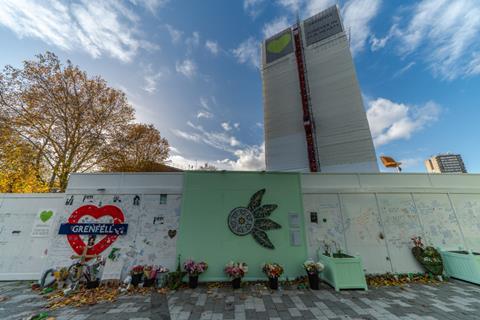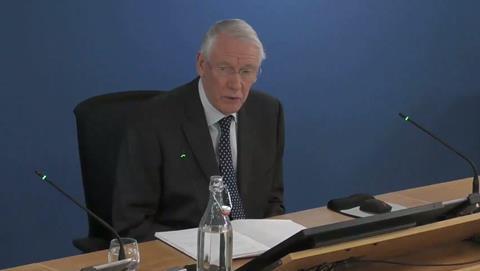Phase-two findings may not be published before seventh anniversary of tower-block disaster

Findings and recommendations from the second phase of the Grenfell Inquiry have been hit by further delays and are now not expected to be published until towards the middle of next year, it has emerged.
An update from the project team probing the systemic and industry failings behind the 2017 tower-block fire in west London that claimed 72 lives said it would not be possible to publish the report before April 2024.
The inquiry took its last evidence in summer 2022 and heard closing statements in autumn last year. At that time it was expected that the report, which will examine the government’s oversight of the building-safety system and the conduct of product manufacturers and contractors involved in the botched refurbishment of Grenfell Tower, would be published before the end of 2023.
This spring, the inquiry team pushed back its timescale for completion to “early” 2024. The latest delays could mean that the inquiry’s phase-two findings and recommendations aren’t made public before the seventh anniversary of the fire in June.
In an update on its work published on Friday, the inquiry team said: “The amount of evidence, both oral and documentary, that the inquiry has collected makes the drafting of a report a very time-consuming task and the process of preparing and printing a work of this size will take a considerable number of weeks.

“As things stand, the report will not be published before April next year but the panel hopes to be able to send it to the prime minister before the next anniversary of the fire with publication soon thereafter.”
It will be up to the prime minister to determine when to publish the report and its findings, along with his response. Receipt of the document before 14 June would not guarantee publication on or before the anniversary.
The inquiry team’s update said that while some draft chapters had been completed, work was not finished on chapters relating to manufacturers of products and certification bodies and aspects of the Kensington and Chelsea Tenant Management Organisation’s conduct. The TMO was responsible for managing Grenfell Tower and was the client for the refurbishment.
The inquiry team said there was also work still to do on chapters relating to experimental work conducted by some of the inquiry’s expert witnesses.
Rules for public inquiries require people who may be the subject of criticism to be sent warning letters setting out the basis for that criticism.
>> Grenfell Inquiry: Barrister closes hearings with attack on ‘buck-passing’ firms
>>What you need to know about Morrell’s ‘seminal’ review into products testing
The inquiry team said the so-called “rule 13” process was “proving time-consuming” because recipients of warning letters need a reasonable amount of time to respond and their answers need to be analysed to see if provisional conclusions should be altered.
Friday’s update said more than 100 warning letters had so-far been sent out and that the team considered it was “probably over half-way through the process”.
It said that warning letters to people working in government had now been sent out and some responses had been received. Letters to people at product manufacturers and certification bodies have not, however.
The Grenfell Inquiry’s phase-one report, which looked at the events on the day of the fire, was published in October 2019.

























No comments yet